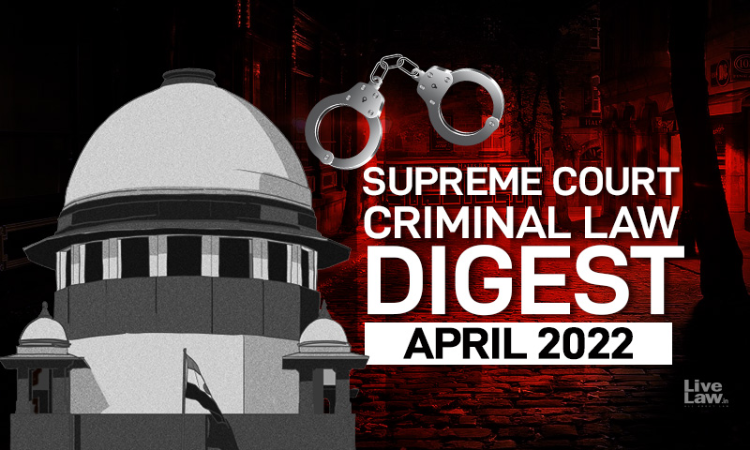Next Story
7 May 2022 9:15 AM IST
Arms Act, 1950; Section 27 - Supreme Court Patna High Court judgment which modified the judgment passed by the Trial Court convicting the appellants- accused under Section 307 read with Section 34 Indian Penal Code to Section 324 IPC and confirming their conviction under Section 27 of the Arms Act. Anuj Singh @ Ramanuj Singh @ Seth Singh v. State of Bihar, 2022 LiveLaw (SC)...

